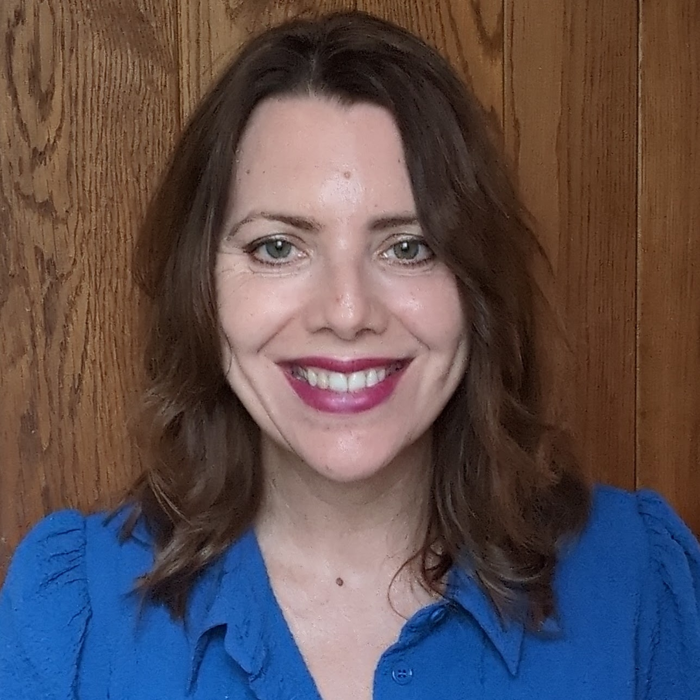The Voice Skills Approach To Voice Analysis And Action Planning
Thursday 11th May 2023, 5:00 PM - 7:00 PM (London Time)
In this talk, Christina will describe the approach and the Voice Skills Framework and participants will have the chance to practise perceptual analysis on a short video, where the ‘client’s’ spoken voice issues are likely to be relevant to their sung voice. She will then demonstrate and lead an exploration of core exercises for each of the 8 voice skills parameters.
Christina’s book, Voice Work: Art and Science in Changing Voices (2009) has become a core text for voice practitioners since it addresses the theory and practice of voice work with both normal and disturbed voice.
The Voice Skills approach is central to the book. Developed over many years of practical work with speakers and singers, it is based on Christina’s definition of the ‘Free Voice’, based on 8 core aspects: Body, Breath, Channel, Phonation, Resonance, Pitch, Loudness and Articulation. This will be strong and flexible in both personal and professional contexts and will not tire during speaking or singing – nor will it react under stress during a demanding rehearsal, show, presentation or long social evening.
The Voice Skills Framework uses these aspects in a simple-to-use perceptual voice listening tool which helps to illuminate what is ‘going on’ in a voice, and points a voice practitioner towards appropriate directions for voice work. This system of listening and analysis has been widely taught, both in the UK and in other countries and is used by many different voice practitioners.
Christina Shewell
Christina Shewell, MA, FRCSLT ADVS is spoken voice teacher, and speech/ language therapist with long experience in voice work with a wide range of clients, in both voice therapy and voice development.

Attend this course for as little as £22 as part of the Voice Professional Training CPD Award Scheme.
Learn MoreSorry, this is an archived short course...
We have plenty of upcoming short courses coming soon. See details of some of them below or look at the full list of short courses.

Tuesday 13th January 2026
5:00 PM - 6:30 PM
Tuesday 20th January 2026
5:00 PM - 6:30 PM
Tuesday 27th January 2026
5:00 PM - 6:30 PM
Tuesday 3rd February 2026
5:00 PM - 6:30 PM
Tuesday 10th February 2026
5:00 PM - 6:30 PM
(London Time)
Introduction to Postgraduate Academic Skills - Join Live!

Debbie Winter
Are you ready to elevate your academic journey? Hosted by our very own Debbie Winter, join our comprehensive Introduction to Academic Skills course, designed to equip you with essential tools and strategies for success in higher education. Perfect for bridging the gap between undergraduate and postgraduate study, this course offers a pathway to our full MA for students without an existing degree. We offer both live, interactive sessions and standalone, pre-recorded content.

Thursday 15th January 2026
5:00 PM - 7:00 PM
Thursday 22nd January 2026
5:00 PM - 7:00 PM
Thursday 29th January 2026
5:00 PM - 7:00 PM
Thursday 5th February 2026
5:00 PM - 7:00 PM
Thursday 12th February 2026
5:00 PM - 7:00 PM
(London Time)
Trauma-Sensitive Voice Professional Certificate with Dr Elisa Monti

Dr Elisa Monti
Updated for 2026, this five-part certificate course is designed to help participants learn the theory and practice of trauma-sensitive approaches. The concepts and activities included are tailored to meet the needs of voice specialists who want to acquire more specific tools to navigate the space with their students and colleagues.

Monday 9th February 2026
5:00 PM - 7:00 PM
(London Time)
Certificate in Applied Voice Pedagogy with Adam Roberts

Adam Roberts
Spring Immersive - live and interactive learning! This 12-week online programme is designed for voice professionals committed to deepening applied voice pedagogy skills and advancing professional practice. The course offers a rich environment to reflect on your teaching philosophy and develop applied pedagogical techniques. It is ideal for voice teachers, coaches, therapists, and performers seeking to bridge foundational knowledge with practical, student-centered applications.
